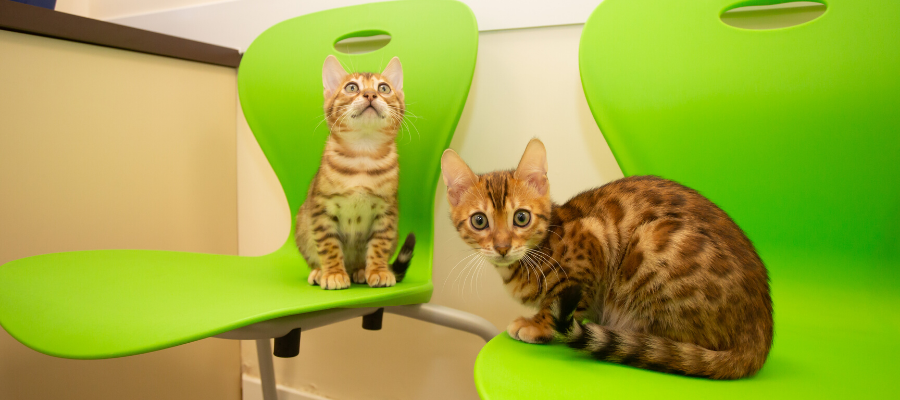Why are vaccinations important?
There are a number of highly infectious (and potentially fatal) diseases that can affect your pet. Many of these diseases have no effective treatment, and in extreme cases, animals may die.
However, for many of these conditions there is a simple protection in the form of vaccination and regular annual boosters, so we urge you to ensure that your pet is always up to date with the recommended protection.
What do you vaccinate against?
Feline panleukopaenia (feline enteritis)
This serious disease is caused by a highly infectious virus which can remain active in the environment for at least a year and the few cats who recover can continue to shed the virus for long periods.
Fever, depression, sudden weight loss, vomiting, loss of appetite and dehydration despite an insatiable thirst are common symptoms. All cats are susceptible, but especially kittens and elderly cats. In badly affected cats death can occur within 24 hours of the first symptom.
Cat flu (feline herpesvirus and feline calicivirus)
Cat flu is often caused by an initial viral attack, followed by a secondary bacterial infection. Symptoms include discharge from the mouth, eyes and nose often accompanied by bouts of sneezing. In severe cases it can lead to a lung infection, leaving the patient weak and debilitated. Transmission is usually via sneezing but can be spread by physical contact also.
Leukaemia (FeLV)
Feline leukaemia is an incurable viral infection that produces fatal cancers in infected cats. FeLV is estimated to affect 1-2% of cats in the UK, with most dying within 3-4 years of FeLV detection. Initially the virus only causes mild transient signs, however the virus damages white blood cells, meaning they cannot fight infection. It also leads to cancer and anaemia.
My cat is indoor only, should I still vaccinate?
While there is a general perception that outdoor cats are most at risk because they are more likely to have cat to cat contact, indoor cats should absolutely be vaccinated too. While the feline leukaemia virus breaks down rapidly in the environment, herpesvirus, calicivirus and panleukopenia are not always spread cat to cat and can be brought inside on us via our clothing and hands. This means even if they do not have direct contact with any other cats, they are still at risk. Those who plan to introduce a new cat into the household should make sure all the cats are vaccinated as the diseases are easily transmissible between felines. This can be done by making sure existing cats are up-to-date on their vaccinations before the introduction of the new feline friend, and the new cat can then be vaccinated when they are of age or within the first couple of weeks after their arrival if they are an adult cat.
It is also a requirement if your cat needs to go into the cattery.
Call us on 01435 864422 to book an appointment today!


